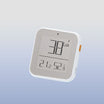- Vitamin D deficiency symptoms include back pain, bone pain, and frequent colds.
- Vitamin D deficiency is caused by a lack of sunlight and not eating enough vitamin D-rich foods.
- To treat vitamin D deficiency, take a supplement and spend 15 minutes outside in the sun daily.
Vitamin D is an essential vitamin that helps your body absorb calcium — one of the main building blocks of bones. It also plays a role in nerve and muscle health as well as boosting your immune system.
Your body produces vitamin D naturally when it's exposed to sunlight, which is why vitamin D is sometimes nicknamed the "sunshine vitamin." Few foods contain vitamin D, making sunlight the main source for most people worldwide.
But when sunlight isn't regularly available, like during winter months or at higher latitudes, vitamin D deficiency can strike. In fact, an estimated 40% of US adults don't get enough of the sunshine vitamin.
This article can help you determine if you have a vitamin D deficiency and how to treat it.
Signs and symptoms
Common symptoms of vitamin D deficiency include:
- Back pain
- Bone pain
- Muscle weakness
- Frequent colds or respiratory infections
- Fatigue
Severe deficiency can cause osteomalacia and osteoporosis, conditions where bones become less dense and more likely to fracture or break, says Kelly Springer, a registered dietitian.
Springer also notes that vitamin D has links to depression, but adds that there is still more research needed before doctors recommend vitamin D supplements to treat depression.
Causes
You can become vitamin D deficient for several reasons:
- Lack of sunlight exposure as the body naturally produces vitamin D when exposed to the sun.
- Not eating enough vitamin D-rich foods
- Being unable to absorb or metabolize vitamin D due to a medical condition like celiac disease, Crohn's disease, and cystic fibrosis.
How much vitamin D do I need?
The average adult needs around 600 international units (IU) of vitamin D a day. For reference, a serving of salmon contains roughly 400 IU.
The recommended dosage is different across age groups. The chart below shows the daily intake needed to maintain bone health:
Treatment
You can up your vitamin D intake in three major ways:
- Getting more exposure to sunlight
- Eat more foods rich in Vitamin D in your diet
- Try nutritional Vitamin D supplements
Unlike other nutrients, vitamin D is produced by the body naturally when the skin is exposed to the ultraviolet rays from the sun. Depending on where you call home, you should try to get at least 15 minutes of sunlight between peak intensity hours from 10 a.m. and 3 p.m., three times a week, in order to get enough vitamin D.
In addition to sunlight, you can obtain vitamin D through foods like salmon, mushrooms, and eggs. But because there are relatively few foods that contain adequate amounts of vitamin D, some everyday staple items like milk and cereal are fortified with vitamin D.
Vitamin D supplements are another way to ensure you're getting your daily dose. Supplements can be advantageous for all healthy adults, but especially for those who struggle to get adequate amounts via dietary intake or exposure to sunlight due to skin sensitivity.
Summary
Even though the human body is able to produce vitamin D through exposure to sunlight, up to 40% of Americans are still deficient in this crucial vitamin. Symptoms of vitamin D deficiency include back pain, bone pain, and muscle weakness.
If you think you are vitamin D deficient, OTER recommends getting more sun, eating more foods containing vitamin D, or taking supplements.
#Share the sunshine life Hope this article can help you or your friends.
Author:By Madeline Kennedy
This article was medically reviewed by Melissa Rifkin, MS, RD, CDN, owner of Melissa Rifkin Nutrition LLC.





















Leave a comment
All comments are moderated before being published.
This site is protected by reCAPTCHA and the Google Privacy Policy and Terms of Service apply.